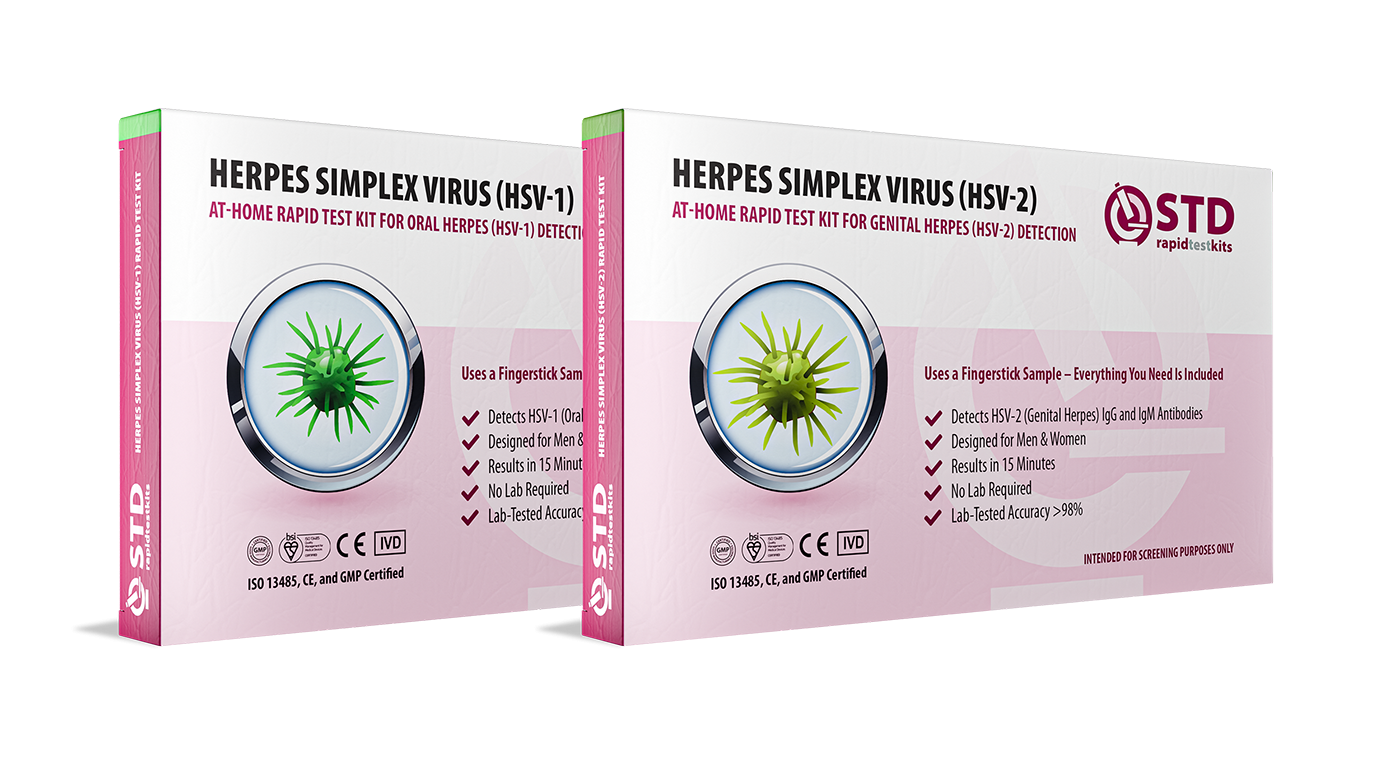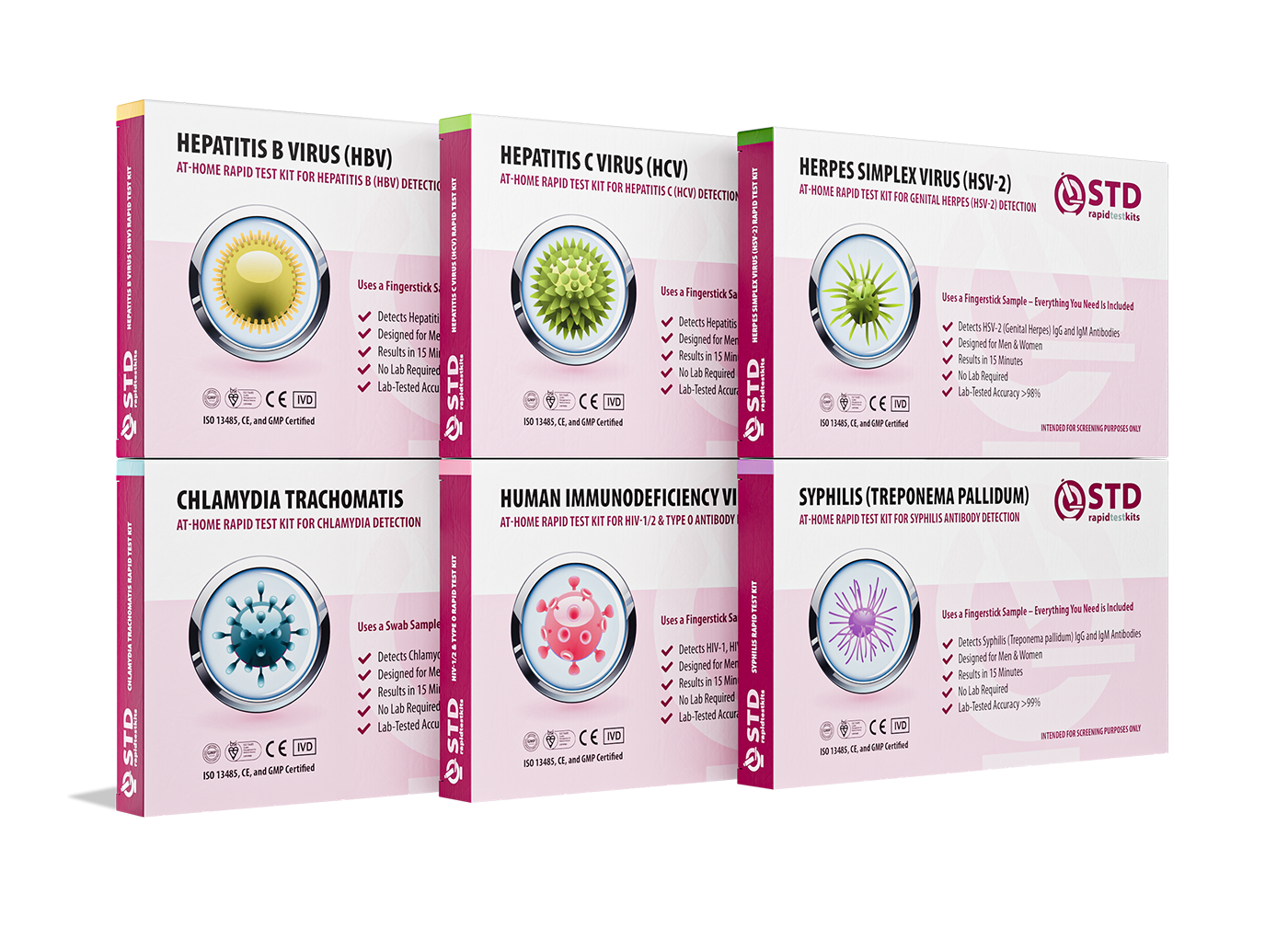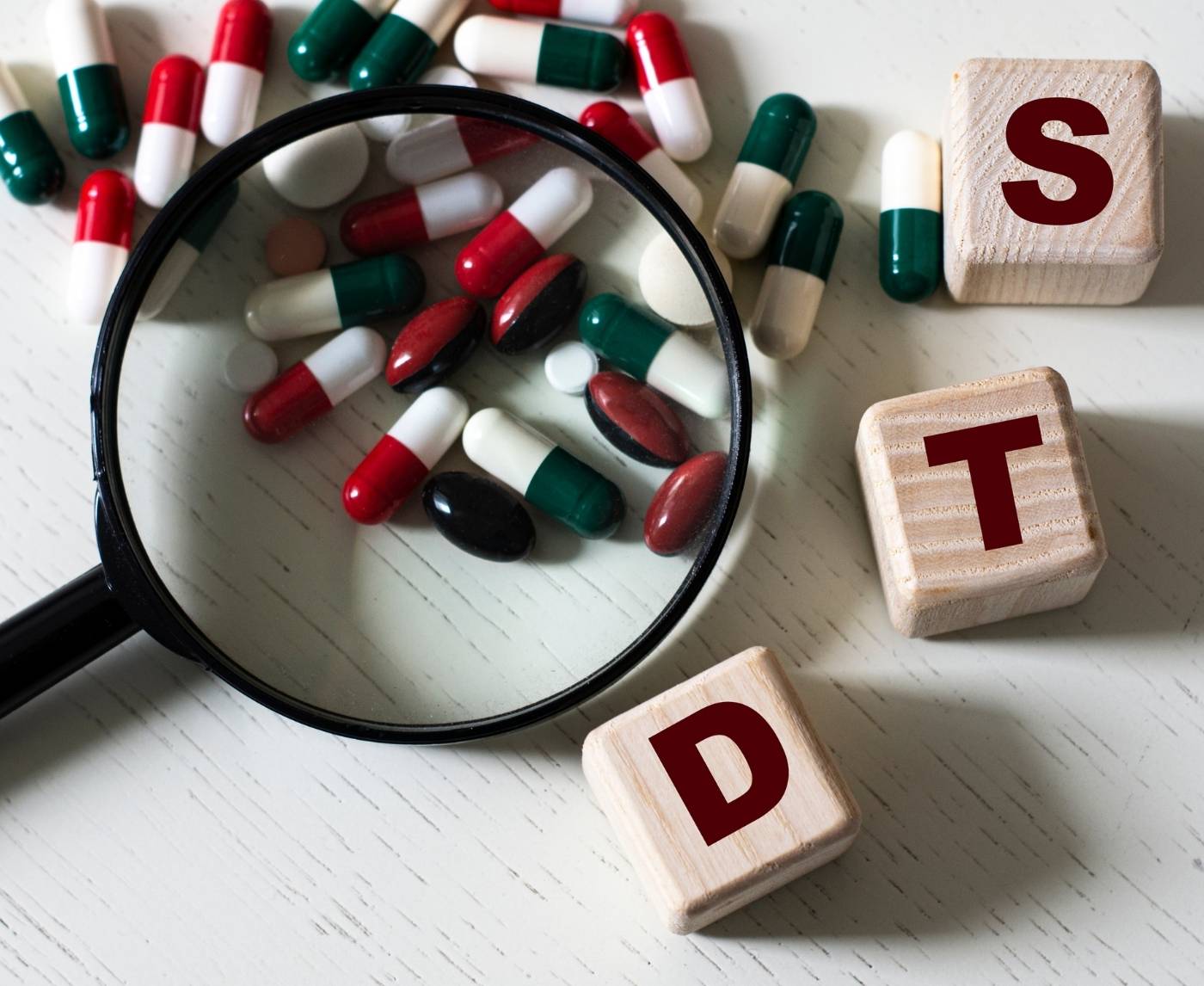At-Home HIV Test or Lab Work: What Actually Gives You Peace of Mind
An Introduction to the Most Common Sexually Transmitted Diseases
Chlamydia
Worldwide, chlamydia is among the most often reported bacterial sexually transmitted diseases. The most common ways it spreads are during oral, vaginal, or anal intercourse. For early detection and treatment, it is vital to do regular testing, even using at-home STD test kits, as many people do not have any symptoms at all.
Gonorrhea
Gonorrhea, sometimes called "the clap," is a sexually transmitted disease that is very similar to chlamydia. It causes painful urination and discharge when it infects the vaginal system, rectum, or throat. Complications are less likely to occur when sexually transmitted diseases (STDs) are detected early using at-home test kits.
HPV, or Human Papillomavirus
The most common sexually transmitted disease (STD) worldwide is HPV, a virus. It spreads from person to person by sexually transmitted skin-to-skin contact. Although the majority of infections clear up without treatment, some varieties might cause cancer or genital warts.
Syphilis
Untreated syphilis, a bacterial infection, can develop into severe complications. If left untreated, syphilis can spread from person to person through sexual contact with infected sores.

Herpes
Genital herpes is caused by herpes simplex virus type 2, while herpes virus type 1 can also cause herpes. It enters the body through skin-to-skin contact and stays there permanently, sometimes reactivating when we're sick or stressed.
HIV
If left untreated, HIV affects the immune system, eventually leading to AIDS. It typically spreads by unprotected intercourse or sharing needles and other bodily fluids, including blood, sperm, vaginal secretions, and breast milk.
Trichomoniasis
Itching, burning, and abnormal discharge are common symptoms of this sexually transmitted disease (STD) caused by the parasite Trichomonas vaginalis. Nevertheless, a large number of infected people show no symptoms at all.
Check Your STD Status in Minutes
Test at Home with RemediumGenital & Oral Herpes Test Kit

 For Men & Women
For Men & Women Results in Minutes
Results in Minutes No Lab Needed
No Lab Needed Private & Discreet
Private & DiscreetOrder Now $75.00 $98.00
For all 2 tests
Transmission Methods
Intercourse Including Sexual Relations
The most common ways that sexually transmitted diseases (STDs) spread are through oral, vaginal, or anal intercourse. The danger is higher during unprotected intercourse, particularly if one partner does not know whether they are infected.
Touching One's Skin
Direct skin-to-skin contact during non-penetrative sexual activities might transmit infections such as herpes simplex virus (HPV) and others.
Internal Fluids of the Body
Sexually transmitted diseases (STDs) such as HIV, syphilis, and gonorrhea are transmitted by transfusions of blood, vaginal secretions, and sperm.
Exchange Needles
A major vector for the transmission of hepatitis B and C and HIV is the intravenous administration of drugs using dirty needles.
Maternal to Infant
The transmission of some sexually transmitted diseases (STDs) from an infected woman to her child can occur during childbirth or nursing. These include syphilis, HIV, and herpes.

Preventative Measures
Safe Sex
The prevalence of sexually transmitted diseases (STDs) can be greatly decreased with the regular use of oral dams and condoms during sexual activity.
Frequent Testing
Those who engage in sexual activity frequently or who have more than one partner should prioritize routine STD testing. Finding the problem early on lessens the likelihood of problems and transmission. A discreet and hassle-free approach to monitor your sexual health is with our at-home STD test kits.
Inoculation Against Disease
Sexually transmitted diseases (STDs) like hepatitis B and HPV have vaccines that people can get. Another line of defense is to keep up with recommended vaccine schedules.
Embracing Honest Dialog
Partners and healthcare providers can make better decisions and encourage shared responsibility when sexual health is openly discussed.

Answers to Common Questions
1. Is it possible for sexually transmitted diseases to propagate asymptomatically?
Chlamydia, gonorrhea, and HPV are just a few of the sexually transmitted diseases (STDs) that can spread undetected.
2. Can the treatment of all sexually transmitted diseases be curable?
Many sexually transmitted diseases cannot be cured. Antibiotics can cure bacterial illnesses like chlamydia and gonorrhea, but viral infections like herpes and HIV necessitate continuous care.
3. Is oral sex a method to contract an STD?
Herpes, syphilis, and gonorrhea are among the illnesses that can be transmitted by oral intercourse.
4. What is the recommended testing frequency?
Regular testing is recommended for sexually active persons, with more regular testing recommended for those who participate in high-risk activities or have several partners.
5. What are the dangers of sexually transmitted diseases that go untreated?
Serious health problems, such as infertility, persistent discomfort, and an increased chance of obtaining HIV, can result from untreated sexually transmitted diseases.
6. Can vaccinations prevent sexually transmitted diseases?
Vaccines against certain sexually transmitted diseases (STDs) are indeed accessible. For certain diseases, these immunizations work wonders.
7. Can the danger of sexually transmitted diseases be entirely eliminated by using condoms?
Condoms are an effective means of preventing sexually transmitted diseases (STDs), but they are not foolproof. This is particularly true when it comes to skin-to-skin infections, such as herpes or HPV.
8. Can sexually transmitted diseases be spread through sharing razors and other personal items?
Sharing objects that have come into touch with infected blood is a possible way to spread certain sexually transmitted diseases, like hepatitis B or C.
9. What is the best way to get my partner's opinion on sexually transmitted disease testing?
Honest dialogue is essential. Be forthright and emphasize the significance of each other's well-being and accountability when broaching the subject.
10. Can one trust home STD test kits?
Our at-home STD test kits, among others, give you the answers you need in a way that won't draw attention to yourself, so you can take better care of your sexual health.
Check Your STD Status in Minutes
Test at Home with Remedium6-in-1 STD Test Kit

 For Men & Women
For Men & Women Results in Minutes
Results in Minutes No Lab Needed
No Lab Needed Private & Discreet
Private & DiscreetOrder Now $119.00 $294.00
For all 6 tests
Knowledge is Power
The key to prevention is understanding the most prevalent STDs and how they are transmitted. Safe sex, frequent screenings, and education can help people avoid harm to themselves and their partners. Discreet and easy to use, our at-home STD test kits allow you to take charge of your sexual health without leaving your house. Your well-being and tranquility are paramount, so do not delay.
Sources
1.- Most Common STDs in Men and Women - WebMD
2.- Understanding Common STDs - Verywell Health
3.- Sexually Transmitted Diseases Overview - Healthline
4.- About STIs - CDC










